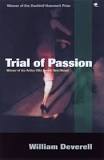
Where would we be without the Internet and the rest of our power grid? What would happen if it was here today and gone tomorrow? Just like turning off a light switch.
A normal September Monday in the DC 'burbs. Lana Elkins, single mom, is struggling to get her 14yo daughter Emma set for school in an outfit that won't get either arrested when the lights flicker and go out in the kitchen, the house, the cul-de-sac, the neighborhood, the suburb, all of DC, the east coast . . . the entire country goes black.
Lana isn't any ordinary soccer mom. She owns CyberFortress and does contract work for the NSA, specializing in digital security that Congress and the White House largely ignore. She knows this isn't some substation overload. Hackers. Big time hackers. Maybe even state-sponsored hackers. Trains collide, gas mains erupt, the mother of all traffic jams. Thousands die across the country.
A Saudi-born American, Ruhi Mancur, is Director of Research at the Natural Resources Defense Council. An environmental lobby group. He is an American with no love for Islamic fundamentalists. But his cousin Ahmed, who bears a striking resemblance to OBL, is way high up in AQAP, al Qaeda Arab Peninsula and one of the most sought after terror planners by every Western intelligence agency. That blood connection puts Ruhi under the FBI's and the NSA's program of constant surveillance. After the power comes back, possible suspects to the attack include Ahmed and Ruhi's connection is blasted over the airwaves. Roving gangs of looters spot Ruhi and if not for the help of his neighbor (and wanna be girlfriend) Candace, might've been torn to pieces. Candace may be an intern on Capitol Hill, but was also an embassy guard in Afghanistan so she knows how to handle a gun.
There is code amongst hackers: leave air travel and banks alone. The grid comes back online 24 hours to the second after all went black. An eerie voice announces across the TV feed that the last 24 hours were but a preview. In the coming days, the entire grid would not just be shut off. It would be destroyed. The US would be sent back to the 19th century and earlier. And this time, they won't be so nice. They'll cut off air travel, banking, nuclear power, but all that's just the appetizer. They also control labs around the country that house lethal viruses and the big one: the nuclear arsenal, which they've programmed to launch and hit American cities. The imminent and total destruction of America is at hand.
All that plus that the US is the primary target suggests a jihad factor. The US intelligence services round up suspects, Ruhi included, use extraordinary rendition techniques to find out what Ruhi has on his cousin. But the interrogators don't really want to know about Ahmed. They want to know what Ruhi can handle so he can be sent back to Riyadh, find his cousin and, with the help of Lana, uncover the cyber stronghold in order to hack the hackers and release control of the US networks.
Wow, that's a lot for one book. Waite starts us off with a push off a 100 mile/hour waterslide. No hope of stopping if you get going too fast. You start reading . . . and you are in. Better than our typical airplane read and if the next Lana Elkins book (Trident Code) is this good, Waite will leap into my power rotation of thriller writers. There were times when I had to remind myself to breathe. It's that gripping. Who cares if the hero isn't a walking bottle of pure testosterone. Rui, Lana, and daughter Emma, are as tough as they come.
You can bet I'm on the lookout for Trident Code.
East Coast Don







